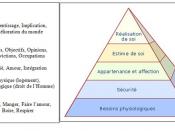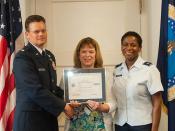Introduction
It is certainly true that many of the ideas taught in college classrooms within business schools are not experienced in the real world of work. This is true in all of the business disciplines, including accounting, economics, finance, management, and marketing-and their various academic subdisciplines. This is not exceptional to the field of HR.
The very difference lying between the modern Human Resource Management Theory and the traditional personnel management theory is contemporary HRM changed conventional views in the aspect that it treats the employee as the most important resource within an organization. Meanwhile, the HRM has enriched the contents of the personnel management and presented a fusion of personnel management and industrial relations. As a consequence, the managers all take much greater responsibilities than the in the past. The contemporary HRM includes all activities used to attract and retain employees and to ensure they perform at a high level in meeting organisation's strategic goal.
Specifically, it features in recruiting appropriate staff, providing training and development programmes for the employees, giving appraisal and feedback to employees, setting reward system, maintaining employee relations. The effects of the HRM on improving staff performance and further on the whole company profitability have been clarified and supported by numerous facts and statistics. Does this indicate there is not any problem when applying the theories of HRM into real situation for its effectiveness and reliability? In this essay, the focus lies on one of these sections, motivation and reward system, instead of panoramic perspective, to see the discrepancy between ivory-tower theory and real-world practice.
Main part
The assumption is that theory is the good or ideal way, and that practice is the often not-so-good, actual way of the real world. But we must ask, if theory is so far off so frequently from describing...



Perception
"Theroy" is spelled theory this typo/spelling error in your title makes a big difference to how your essay (which is good) is percieved.
3 out of 3 people found this comment useful.